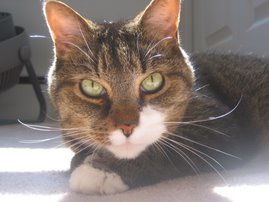
A Tale of Two Continents, Three Religions, Five Infertility Doctors, an Oscar, an Atomic Bomb, a Romantic Night, and One Woman’s Quest to Become a Mother
By Peggy Orenstein
Once upon a time, Peggy Orenstein was a successful writer with a happy marriage living in California. She felt ambivalent about having children, but always thought there would be time later, when it would be more convenient. Like many women, she put it off, often refusing to even discuss it with her husband, but one day at age thirty-five, she and her husband finally agree its time to try. Six weeks later, after the results of a baseline mammogram reveal an abnormality, Peg is diagnosed with breast cancer and the baby plans are put on hold again for six months. This is just the beginning of her inspiring and heartbreaking journey to becoming a mother, transforming her entire life, questioning her past decisions and jeopardizing her marriage. The more treatments Peg endures, including oral medication, injectibles, IUI, IVF, acupuncture, and surrogacy, the more obsessed she becomes with becoming pregnant. The best part is that Peg’s story has a very happy ending; six years, three miscarriages and thousands of dollars later, just as she and her husband begin the adoption process, Peg becomes pregnant against all odds at age 41 and delivers a perfect baby girl that they name Daisy.
Waiting for Daisy is very well written, and while it is painful to read at times, it is ultimately extremely hopeful. My heart goes out to anyone experiencing fertility problems after reading about her ordeal. Orenstein cautions readers experiencing infertility to remember that in many ways, they are consumers and must be alert to false promises and to the “allure of perpetual hope.” She also questions the definition of infertility as failure to conceive after just one year when a recent large scale study found that 90% of women in their late 30’s will get pregnant within two years of trying.
Orenstein walks a fine line, never allowing her story to become depressing or sappy, and I think that is mostly due to her talent as a writer and her honesty. I found many passages in this book to be both eloquently written and extremely moving.
“At one time, I would have told a woman like me that childlessness was not her problem; it was her inability to recognize the value in all that she had, in all that she’d built for herself. But I had become the woman I once pitied, the one who was too easily swayed by the gross oversimplifications that collapsed all of life’s complexities into the convenient box of ‘waited too long.’”
And near the end of the book:
“If life gave do-overs, I wouldn’t change my course, but I would choose to traverse it differently – with less craziness, more equanimity, more courage. I would tell myself, ‘This is your life, no matter what happens,’ rather than, ‘This is your life, only if you can make this one thing happen’…If you didn’t try it, you’d always have to wonder whether it would have worked. That’s how you lose sight of your real choices, because the ones you’re offered make you feel as if you have none.”
Finally, after a friend comments that, “Everything happens for a reason,” after Daisy’s birth:
“That’s not something I believe, not when women I love die, not when children are starving, when adults are tortured. Nor do I like its corollary: ’God only gives you what you can handle.’ If so, God is a sadist. I refuse to view life through such a simplistic, superstitious lens. I did not get cancer because I held in anger. My infertility was not a result of my ambivalence about motherhood…Adversity is a random, arbitrary thing, though one can still glean meaning from it, use its crucible to become a better, more compassionate person. My story, I’ve found, is not so unusual. Many women experience at least one of its twists- miscarriage, infertility, breast cancer – and fear at dark moments, that they caused their affliction. Most women ask themselves at one time or another what it means to mother- what the cost might be to their careers or marriages, how it reshapes the self. And all of us, male and female, encounter pain and loss; all of us reckon with dreams unfulfilled, with the limits our younger choices have placed on our lives. All of us have to figure out how to move beyond that regret… My pettiness is dwarfed by a sense of reverent, radiant gratitude that’s sweeter for having experienced its opposite, as love is sweeter for one’s scars. Mine is the luck of realizing that happiness may only be the respite between bouts of pain and so is to be savored, not taken as an entitlement…And although in many ways I’d give a lot not to have learned it, I’m grateful for the lesson.”
A beautifully written, and worthwhile book. My only real criticism (besides the fact that I felt the chapter on Peg's visit to an old friend with fifteen children was a bit long) was that I wish she had written a more about her life with Daisy. Maybe she will write a sequel! Recommended.

No comments:
Post a Comment